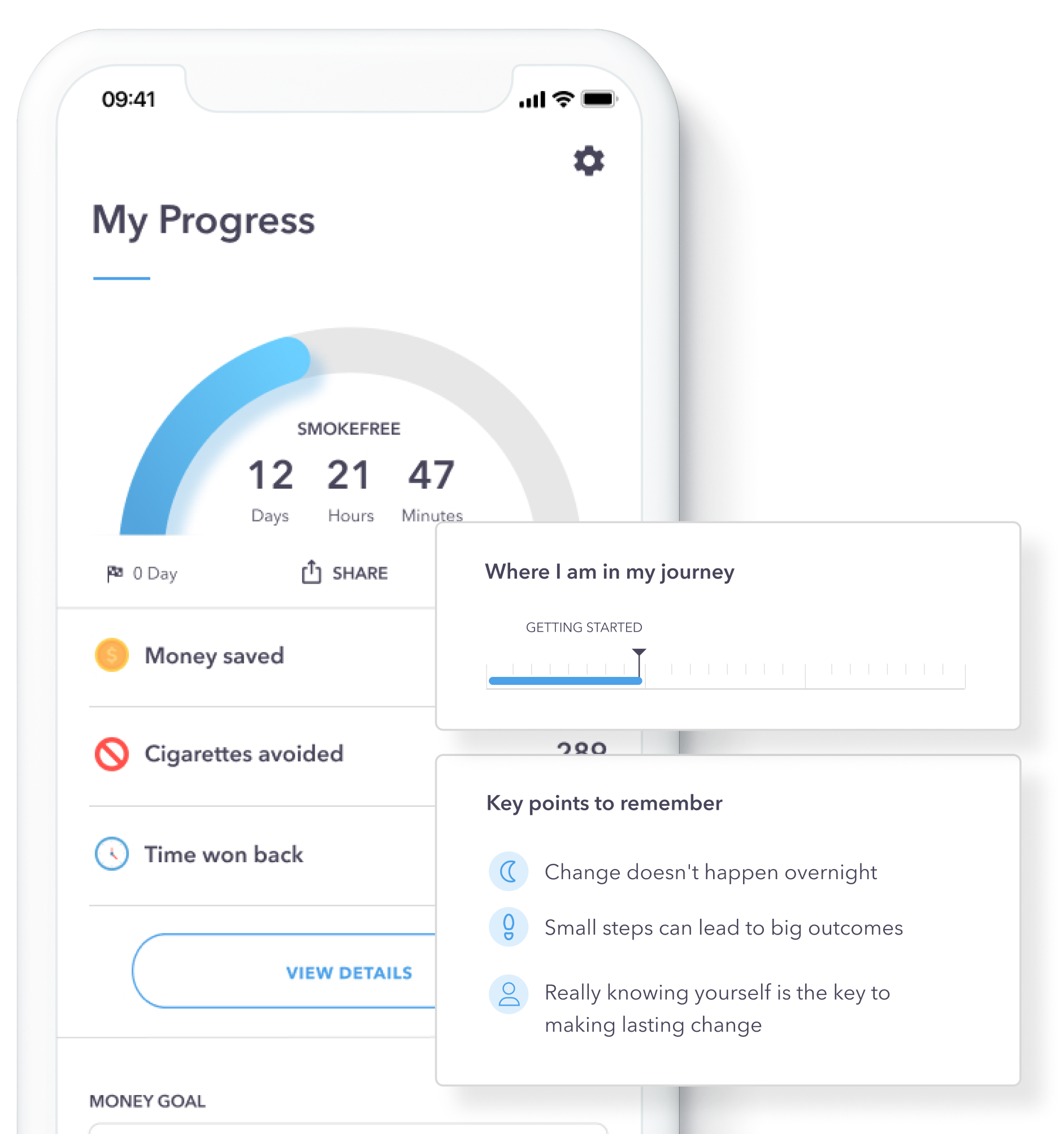SPONSORED CONTENT
Here’s why you struggle to quit smoking – and how a holistic approach can help

Ahead of World No-Tobacco Day on 31 May Dr Mosima Mabunda, Head of Wellness at Discovery Vitality, says she appreciates how hard it can be to kick the habit, but there are innovative interventions that can help. To this end, Discovery Vitality has partnered with leading global smoking cessation partner, Quit Genius, to offer members treatment at no cost, including one-on-one coaching support, Cognitive Behavioural Therapy and biological therapy
It is estimated that around 22% of the global population (1.3 billion people) currently use tobacco, yet data, as well as real-life experience, tell us that most smokers want to quit – aware that smoking negatively impacts their lives, health, and families. However, fewer than one in ten smokers succeed each year.
What goes wrong?
We know that smoking is highly addictive, particularly because of the nicotine found in cigarettes. As with other drugs such as cocaine and heroin, nicotine activates the brain’s reward circuits. However, the effect of nicotine wears off quickly, leading people to feelings of withdrawal, such as irritability and anxiety. This motivates them to light up another cigarette, and so the cycle continues. People can quickly become addicted to smoking and suffer both physical and psychological withdrawal symptoms when they try to stop.
The harmful effects of smoking on physical health are well known, including the substantial increase in the risk of developing lung cancer, chronic obstructive pulmonary disease (a chronic lung disease that makes it difficult to breathe) and coronary heart disease, among others. Tobacco use is responsible for 8 million deaths each year worldwide, with 1.2 million of these being non-smokers exposed to second-hand smoke.
Many of us may not be aware of the relationship between smoking and mental health. While people are twice as likely to smoke if they have a mental illness, what is not commonly known is that smoking also increases mental illness symptoms, including for depression and anxiety. Additionally, having a mental illness may make it harder to stop smoking.

The right support increases the chances for success
Understanding that professional support and proven cessation interventions can significantly improve a smoker’s chance of successful quitting, Discovery Vitality has searched for a viable solution to help tackle the addiction to nicotine, one that is powerful in its use of technology, psychology and pharmacology to help people quit. Quit Genius is a technology-enabled digital clinic, which confirms a 52% quit success rate in helping smokers kick the habit for the long term.
The mobile app features include a multi-pronged solution, offering dedicated support for smoking cessation intervention. Recent research confirms the efficacy of the Quit Genius programme which includes:
- A Quit Coach, who is an accredited cessation specialist providing one-on-one support
- Virtual Cognitive Behavioural Therapy, delivered via bitesize audio sessions and interactive exercises to help members learn new techniques to deal with their craving triggers
- Tracking tools to monitor triggers, number of cigarettes smoked, money saved and health progress
- The biological component includes advice and usage guidance for nicotine replacement therapy, which manages withdrawal symptoms and side effects.

The programme is comprehensive, and we see why it has worked for thousands of former-smokers worldwide. Valued at around R4,000 per year, we’re providing this to Vitality members at no cost. This is our commitment to helping our members to quit smoking, with the ultimate aim of reducing the myriad, well-known negative health effects of tobacco use. Click here to sign up. DM/ML
Author: Dr Mosima Mabunda, Head of Wellness at Discovery Vitality

About Discovery Vitality
Vitality is the largest global platform for behaviour change, underpinning the insurance products of leading insurers worldwide, with more than 20 million members in over 35 markets. The Vitality model, established by Discovery Limited in South Africa, has been incentivising behaviour change amongst its clients for over 25 years. Vitality creates shared value by combining behavioural economics, clinical science, and financial incentives to encourage and reward members for taking steps to improve their health. The model began with a focus on health and wellness, and has expanded to include short-term insurance, investments and financial wellness. For more information, please visit the Vitality website or email the Discovery Media Relations team
About Quit Genius
Quit Genius is the world’s first digital clinic for treating nicotine, alcohol and opioid addictions. Built on the evidence-based practice of Medication-Assisted Treatment (MAT), Quit Genius combines virtual behavioural therapy with approved medication and remote monitoring devices to help organisations tackle the high cost of addiction, while improving e individual lives. To-date, Quit Genius has helped more than 750,000 people to quit their dependencies and addictions. The company integrates with any health plans, benefit managers and wellness or community platforms to deliver a turnkey implementation experience. Visit quitgenius.com for more information.


















 Become an Insider
Become an Insider
Comments - Please login in order to comment.